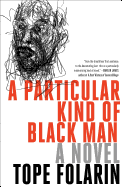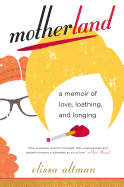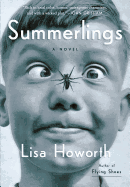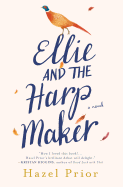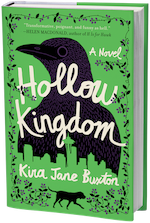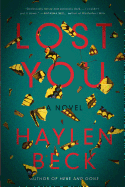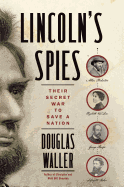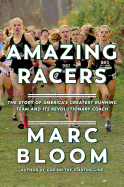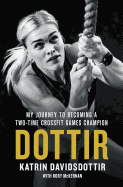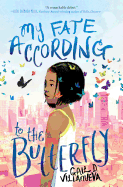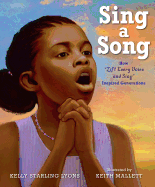Tuesday, August 6, 2019
There are a lot of new parents in my life. They tell me how wonderful it is, how exhausting it is, how different it is than they expected. Of course, I have an urge to give them topical books to read. I have learned from experience, however, that my suggestions are wholly misguided, so I offer them to you instead.
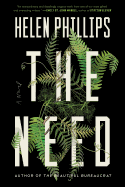 The Need by Helen Phillips (Simon & Schuster, $26) follows a mother determined to protect her two children from an intruder while their father is out of town on business. I can see why new parents might want to steer clear, but this eerie, mind-bending novel is too good to be ignored. Phillips writes with verve and acumen about maternal instincts, even when they go beyond the scope of reason.
The Need by Helen Phillips (Simon & Schuster, $26) follows a mother determined to protect her two children from an intruder while their father is out of town on business. I can see why new parents might want to steer clear, but this eerie, mind-bending novel is too good to be ignored. Phillips writes with verve and acumen about maternal instincts, even when they go beyond the scope of reason.
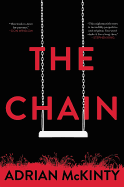 The Chain by Adrian McKinty (Mulholland, $28) imagines a chilling series of child abductions. When her 13-year-old daughter goes missing, Rachel Klein learns that the person who took her did so only to get her own kid back, and so Rachel must now do the same. I don't know why this is the sort of novel that comes to mind when talking to my friends--I really don't.
The Chain by Adrian McKinty (Mulholland, $28) imagines a chilling series of child abductions. When her 13-year-old daughter goes missing, Rachel Klein learns that the person who took her did so only to get her own kid back, and so Rachel must now do the same. I don't know why this is the sort of novel that comes to mind when talking to my friends--I really don't.
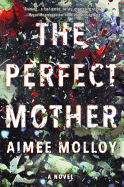 The Perfect Mother by Aimee Molloy (Harper Paperbacks, $16.99) is perhaps the lightest novel of the pack, which isn't saying much. The May Mothers are a cohort of women who gave birth in the same month. Several weeks later, they turn their infants over to partners and sitters and go out for some celebratory drinking. Everything is jolly until one baby turns up missing.
The Perfect Mother by Aimee Molloy (Harper Paperbacks, $16.99) is perhaps the lightest novel of the pack, which isn't saying much. The May Mothers are a cohort of women who gave birth in the same month. Several weeks later, they turn their infants over to partners and sitters and go out for some celebratory drinking. Everything is jolly until one baby turns up missing.
It's not that I want to frighten anyone! No, it's that these stories contain such heartfelt, salient insights into what it means to carry a baby, to nurse, to care for and protect. I think my friends could relate. But maybe just a few years down the line. --Dave Wheeler, associate editor, Shelf Awareness
A Particular Kind of Black Man
by Tope Folarin
Growing up in 1980s suburban Utah, Tunde, his younger brother and their immigrant Nigerian parents hardly resemble the local Mormon majority. Tunde's father blames his accented English for his inability--despite his U.S. engineering degree--to find meaningful employment, eventually attempting a mobile ice cream business long before food trucks became popular. Tunde's isolated mother succumbs to mental illness and returns to Nigeria; her absence brings both relief and regret for Tunde, who is spared her violent abuse but deprived of her (erratic) comfort. The arrival of a stepmother with two additional siblings further stresses the family's already fragile foundation. Despite the repeated uprootings in Utah, then Texas, Tunde relies on the constancy of his faraway Nigerian grandmother's voice to guide him toward manhood.
While A Particular Kind of Black Man is his debut novel, Tope Folarin is no stranger to the international literary community, having won the 2013 Caine Prize for African Writing. He's embraced the "write-what-you-know" charge, overlapping significant biographical milestones with Tunde, including being Utah-born to Nigerian immigrant parents, a Texan adolescence, and a Morehouse College education. Beyond the cover's "novel" label, Folarin augments his prose with inventive wordplay and typographic layout. He creates a visual representation of a young black man in crisis through Tunde's self-admitted unreliability as narrator ("I'm having false memories"), his switching of pronouns among I, you, he--all in reference to himself--and the scattering of sentences on near-empty pages before he is able to literally pull his story back together. A masterful portrait of identity lost and finally found. --Terry Hong, Smithsonian BookDragon
Discover: Caine Prize-winner Tope Folarin mines his immigrant Nigerian heritage in a searing Bildungsroman about a young man constructing his identity despite loss of family, culture, community and country.
Summerlings
by Lisa Howorth
Lisa Howorth's second novel is narrated by John, who spends the book's length looking back at the summer of 1959. He was eight years old and, thrillingly, a spider infestation overtook his neighborhood in Chevy Chase, Md. One adult-promulgated theory was that refugees and immigrants had brought in the spiders.
Because his divorced parents were unstable sorts, John lived with his maternal grandparents, flanked by families with a variety of backgrounds. Also on the street was John's best friend, Ivan Goncharoff, whose father and mysterious, alluring aunt emigrated from Ukraine as children "to get away from Stalin," John explains, "but even so, the Soviet connection didn't endear [them] to my grandparents."
In such a climate, it's perhaps unsurprising that John and Ivan's Jewish friend, Max Friedmann, whose parents fled Austria after the Anschluss, is pointedly not invited to swim in one Connors Lane family's pool. This doesn't sit right with John and Ivan. The boys hatch a plan to "make the neighbors nicer."
In Howorth's fine first novel, Flying Shoes, the protagonist, recalling the three-decades-earlier murder of her nine-year-old stepbrother, wonders, "When had the times turned on children?" True nostalgists might insist that Summerlings takes place long before such times, but the book entertainingly eviscerates the rose-colored notion of postwar tranquility. Despite its Howdy Doody, Brillo pad and Hostess cupcake references slathered on sunscreen-thick, Summerlings is really about a regrettably timely subject: the nation's enduringly mixed track record when it comes to loving thy neighbor. --Nell Beram, author and freelance writer
Discover: In this nostalgic but unblinkered novel set in Chevy Chase, Md., during the summer of 1959, three boys are sufficiently displeased by their neighbors' anti-Semitism to do something about it.
Ellie and the Harpmaker
by Hazel Prior
Ellie and the Harpmaker is a lyrically written, delightfully charming story about two strangers--lost souls--drifting through their lives, until a harp brings them together.
Ellie Jacobs is a lonely housewife living in Exmoor, England. She is married to Clive, a pragmatic, domineering man who goes to work every day and is obsessed with football and finance. One day, on a walk through the West English countryside, while reflecting upon the first anniversary of her beloved father's death, Ellie stumbles upon a place she's never seen before: the Harp Barn. There, she meets Dan Hollis, the "Exmoor Harpmaker." Dan takes utmost pride in his work. He also feels the experiences of life very deeply, but exhibits a limited range of expression.
When Ellie shares the special significance of the day with Dan--and how learning to play the harp is actually on her things to accomplish "before-forty list"--Dan kindly offers Ellie a gift: a harp beautifully carved out of red-gold cherrywood. Ellie is overwhelmed and thrilled by Dan's generosity, but her joy is dashed when she returns home and Clive demands she return the harp. Clive's will and Dan's will ultimately pull Ellie in opposite directions. This calls into question her beliefs about herself and her marriage, while also raising inquiries into the many mysteries of Dan's life.
By telling the story from two intimate points of view, debut novelist Hazel Prior allows readers to discover startling truths right along with her well-drawn characters. This approach heightens the narrative tension and allows this beautiful, tender story about the harmonious meaning of true friendship and love to reverberate with many unexpected surprises. --Kathleen Gerard, blogger at Reading Between the Lines.
Discover: A harp causes two lonely Brits, stalled by fate and the choices they've made in life, to forge a deep, life-changing friendship.
Hollow Kingdom
by Kira Jane Buxton
Kira Jane Buxton's debut, Hollow Kingdom, offers a unique, oddly hopeful perspective on the end of human civilization, thanks to the novel's protagonist, S.T., a domesticated crow. In Buxton's vision of the apocalypse, an unidentified contagion transforms the human population of Seattle, and possibly the entire world, into shambling, zombie-like creatures. For S.T., the apocalypse begins with his owner, Big Jim, losing an eyeball, which S.T. thoughtfully caches "in the cookie jar in case he could use it later." Hollow Kingdom combines dark subject matter with an oddball sense of humor in what proves to be a winning formula.
S.T. is slow to accept Big Jim's decline and, by extension, humanity's decline. His close relationship with Big Jim has left him with a profane vocabulary--he calls all humans "MoFos"--a bank of lowbrow pop cultural references and an enduring admiration for humanity and its creations. When S.T. is forced to leave Big Jim's home, he encounters a Seattle being reclaimed by the natural world, with few animals sharing his nostalgia for humanity's destructive reign. S.T. informs us that most fauna have long called humans Hollows, "named for their dissociative state. In the natural world, MoFos are mistaken for milky-eyed machines intent on destruction, empty vessels that have lost their inner intelligence--the walking blind, dumb animals." In other words, other creatures think human beings resembled zombies long before the contagion hit. In Hollow Kingdom's version of the apocalypse, nature carries on just as well--better, even--without us, and the apocalypse seems less like an ending than the beginning of a new stage of life on Earth.
Hollow Kingdom has some of the trappings of an epic fantasy, with world building that establishes different factions of animals, including the college crows--the largest murder of Seattleite crows, so named because they roost on the University of Washington's Bothell campus. S.T. is always at the ready with an opinionated aside: "They are also a giant troupe of swamp donkeys. UW Bothell is essentially an enormous frat house for a bunch of elitist toot cabbages." As in a fantasy novel, S.T. is forced out of his provincial home into a wider, more dangerous world on a series of quests. He is accompanied by his faithful steed Dennis, a quiet, slightly dopey bloodhound that lets S.T. perch on his back while they wander the streets of Seattle. S.T. holds on to hope that a few uninfected MoFos are out there, but is invested with a new mission: to save the "domestics." He must figure out a way to break windows and open doors before Seattle's legions of pets die, trapped in their homes.
In its broadest strokes, Hollow Kingdom is an environmentalist parable. In the novel, humans receive their long-delayed comeuppance for their mistreatment and ignorance of the natural world. It's no accident that the shambling hordes are obsessed with screens and phones--there are not-subtle warnings about technology throughout the story. Buxton is at her best, however, in imagining the inner lives of animals. The book is an exercise in empathy, an attempt to extend love and understanding to every form of life on earth. Occasional chapters break from S.T.'s point of view to take the perspective of animals around the world. These chapters are some of the most beautiful, offering clever interpretations of each creature's unique way of thinking. An urban elephant herd in Thailand has a chapter that reads like a poem: "walk with us/our numbers grow and we gather/family woven together like nest of a cave swiftlet," while Genghis Cat thinks like a prototypical feline: "I am still utterly amazing... I followed him like the magnificent ninja I am, always out of sight, which is a shame because I am very, very good-looking."
Hollow Kingdom has major thematic messages, but it's also the story of a domestic crow who has to learn to trust others: "Trust, it turned out, was a very beautiful and fragile thing with a taste like wild raspberries and experienced only by the very brave." S.T.'s love for Big Jim is such that he overlooks his many flaws, and seems to have absorbed a measure of Big Jim's cynical, every-man-for-himself attitude. S.T. has to learn that every crow needs its murder, as he bands together with other animals to save the domestics and to combat new threats. He also has to temper his self-identification with and admiration for MoFos, and learn to appreciate everything that comes with being a crow.
If this all sounds very weighty, it's important to emphasize that Hollow Kingdom is an extremely funny, occasionally silly book. The reader will need to possess an appreciation--or, at least, a tolerance--for copious animal puns and characters like Winnie the Poodle, who "was raised to talk about herself in the third poodle." S.T.'s witty commentary is a highlight of the book, though so frequently profane that it resists quotation. What makes Hollow Kingdom special is the ease with which Buxton offsets heavy themes with humor. At the heart of the novel is an entertaining adventure story, like Lord of the Rings crossed with The Incredible Journey. S.T.'s relationship with Dennis achieves pathos and an incredibly earned emotional denouement that I would have never predicted at the start of the novel. Hollow Kingdom is a surprising, funny, genre-bending novel, an environmentalist parable crossed with an epic adventure story, difficult to describe and even more difficult to put down. --Hank Stephenson
Mystery & Thriller
Lost You
by Haylen Beck
Married couple Libby and Mason Reese spend money and suffer years of heartache trying to have a baby. When they finally succeed, Mason tells her, "I can't do this." He walks out on the marriage.
Three years later, Libby and son, Ethan, are vacationing at a resort. Ethan goes missing. Security is alerted. The police are called in. The authorities find him, but he's with a woman who looks just like Libby. The woman, Anna Lenihan, swears the child is hers. Both Libby and Anna have valid claims to Ethan, but neither of the women is a DNA match to him.
Lost You by Haylen Beck (pseudonym of Edgar Award-nominated author Stuart Neville) then takes us back in time to explore the events that led to this dramatic confrontation between two mothers who will do anything to get their child back.
Beck presents the stories of Libby and Anna without judgment, making them equally sympathetic and righteous in their thinking and actions. He shows that, although they aren't blood related, their lives have much more in common than their desperate desire for motherhood. Libby came from humble beginnings; the same goes for Anna. They even have similar problems with their mothers, and neither wants to put the child through what they endured.
Tight writing, suspense, action and multiple moral dilemmas keep this story moving and questioning what the right thing is for the child. --Paul Dinh-McCrillis, freelance reviewer
Discover: A child goes missing and two mothers fight for their right to him in Haylen Beck's Lost You.
Biography & Memoir
Motherland: A Memoir of Love, Loathing, and Longing
by Elissa Altman
In Motherland, long-time columnist and food writer Elissa Altman explores the complex and devastating relationship she and her mother built, tore down and rebuilt, again and again, over the course of decades. After years of engaging daily with her obsessive, narcissistic, volatile mother, Elissa has escaped from New York City to live a quiet life upstate with her wife and dog. While Elissa still calls daily to check in on her mother and continues to support her financially, she is not prepared for her mother's sudden accident, which draws them back together. Now, with years of therapy under her belt and her independence and peaceful life on the line, Elissa must attempt to maintain her distance while being drawn ever closer to the eye of her mother's storm.
Altman's writing is refreshingly frank and clear, both in style and its raw approach to sore subjects. Each episode related in this memoir takes up what seems to be an even more painful memory with unflinching exactitude. Her childhood in 1970s Queens, N.Y., is brought cinematically to life in order to, almost scientifically, study its consequences. As the narrative twists through time and gallops through emotionally earth-shattering moments in her life, Altman lays bare the question of what it means to be a daughter. While she never insists on a definitive answer to this complex question, she does provide the reader the possibility that expectation and begrudging duty can exist alongside genuine sentimental attachment. --Alice Martin, freelance writer and editor
Discover: A bold, unapologetic look at the most sensitive of relationships, Motherland questions the unhealthy choices we make for love while conducting an unrelenting dissection of one fraught mother-daughter relationship.
History
Lincoln's Spies: Their Secret War to Save a Nation
by Douglas Waller
Until now, the role of espionage during the Civil War has often gone unaddressed in volumes about the great conflict. Douglas Waller (Wild Bill Donovan), whose work focuses on the role of spies in history, remedies that with Lincoln's Spies: Their Secret War to Save a Nation.
Waller highlights four Union spies--Allan Pinkerton, Lafayette Baker, George Sharpe and Elizabeth Van Lew--to demonstrate how their lapses and successes influenced the Union's losses and ultimate victory. Working independently, these operatives concentrated on the Civil War's Eastern theater: Virginia, West Virginia, Maryland, Pennsylvania and the District of Columbia. Waller portrays Pinkerton and Baker as inept and even villainous; Sharpe and Van Lew emerge as heroes.
Their intelligence didn't prevent Lincoln's assassination amid numerous threats to the president; "It was a miracle this highly controversial president, hated and feared by so many embittered Southerners and disaffected Northerners, had lived for as long as he did." Baker, who was ultimately responsible for Lincoln's safety, failed to identify John Wilkes Booth and his accomplices prior to the murder.
Waller also gives special attention to the key role African Americans played in providing information to Union spies, noting that they "enjoyed the freedom, denied to most whites, to travel near [Confederate] military sites. Rebel pickets usually let African Americans pass without a search, considering them stupid and harmless." Hence, they made perfect accomplices.
Lincoln's Spies is an intriguing and exciting read, one offering a new perspective on espionage in the Civil War and how the successes and failures of four people helped to shape the conflict's ultimate outcome. --William H. Firman Jr., writer and historian
Discover: A fascinating, fast-paced look at the roles four Union spies played during the Civil War.
Essays & Criticism
White Flights: Race, Fiction, and the American Imagination
by Jess Row
Jess Row (Your Face in Mine) takes on ambitious material with White Flights: Race, Fiction, and the American Imagination. He points out a societal need for reparative writing, examining the role of imagination in real lives, both in "straight" fiction (novels, stories, films, plays) and, in a larger sense, "in which our collective life is a series of overlapping fictions, fantasies, dream states." The first kind "reflects and sustains" the second, so that novels are never "just" novels, but rather serve to uphold institutions and ways of thinking that have consistently and systematically hurt nonwhite Americans.
In seven essays, this book argues that imagination is as much part of the problem as real-world actions and prejudice. Row undertakes close readings of Marilynne Robinson, Don DeLillo, David Foster Wallace, Cormac McCarthy, Annie Dillard, Richard Ford and more: these white writers may be among his own literary heroes, but they nonetheless come under scrutiny for the whiteness, or sheer emptiness, of the spaces they create. On the other hand, he examines James Baldwin, Toni Morrison, Chang-rae Lee, Colson Whitehead, Amiri Baraka and Ta-Nehisi Coates for the examples they offer of more inclusive fictional spaces.
This intelligent collection is often deeply engaged in philosophy and literary theory; it approaches an academic writing style. There is something for every reader, however, in the message that fiction not only reflects but acts upon real life, and that each of us is obliged to act for justice, in reading and writing as in life. --Julia Kastner, librarian and blogger at pagesofjulia
Discover: This tough, serious essay collection considers whiteness in American fiction and culture, and calls for change.
Sports
Amazing Racers: The Story of America's Greatest Running Team and Its Revolutionary Coach
by Marc Bloom
Marc Bloom (Run with the Champions) was as astounded as anyone when the boys' cross-country team from Fayetteville-Manlius High School, in upstate Manlius, N.Y., demolished the competition, including the far-and-away favorites, at a major regional race in 2004. Bloom followed F-M for more than a decade as it continued to dominate the sport. Like coaches, runners and fans everywhere, Bloom wondered: What are they doing up there in Manlius?
A dogged marathoner and cross-country coach, F-M coach Bill Aris studied the methods of New Zealand coach Arthur Lydiard, as well as philosophies from the ancient Greeks and classic rock-and-roll. But it was iconoclastic Australian coach Percy Cerutty who gave Aris his guiding philosophy: a lifestyle Cerutty dubbed Stotan, from a blending of stoic and Spartan. Stotan training is the surprisingly straightforward key to F-M's astonishing success: clean eating, good sleep, hard work; an emphasis on teamwork, humility, harmony with nature and mind-body connection. F-M's prodigies are "regular" kids, their accomplishments born not of technology or special talent but hard training, inspired by and devoted to their coach.
Amazing Racers is an inspiring illumination of a sensational team. Bloom's consistent and sincerely awestruck tone drives home just how special this story is, celebrating both the dedicated young athletes and their leader. While readers looking for the secret to victory may be disappointed--the prescription is, basically, just hard work--there is much to inspire everyone from the armchair racer to the elite athlete in this heartfelt biography of running royalty. --Julia Kastner, librarian and blogger at pagesofjulia
Discover: When a little-known high school cross-country team explodes into national domination, a journalist asks why, and uncovers a coach and kids both amazing and remarkably ordinary.
Dottir: My Journey to Becoming a Two-Time CrossFit Games Champion
by Katrin Davidsdottir
CrossFit combines elements of all sport disciplines with tests borrowed from Navy SEAL training, creating workouts performed by the "world's largest fitness community." The CrossFit Games are the Super Bowl of that community, crowning one man and one woman the "Fittest on Earth." Katrin Davidsdottir has won twice.
Iceland is tops in the world for gender equality and celebrating strong women, despite its patronymic custom (a father's first name prefixes his children's surnames). An athletic competition that values female participation and prizes Viking traits of power and fortitude seems perfectly crafted for Icelandic women, borne out by their dominance since the Games began in 2007. "Thorisdottir, Sigmundsdóttir, and Davidsdottir. One country. Three hundred and thirty thousand inhabitants. Ten podiums. Four Championships. Two silver medals. Four bronze. All Dottirs."
A blend of personal, familial memoir and training chronicle, Dottir follows Davidsdottir's "out of the womb hypercompetitive" path to the champion's podium and her struggle to keep her title in an increasingly challenging contest that airs on ESPN, recently boasting more participants than the population of Iceland.
Rife with CrossFit terminology, Dottir remains inclusive, conveying messages with mass appeal. Davidsdottir trains under the valuable principle "win or learn," freeing her from the mental stigma of failure. Embracing mistakes while pushing her limits facilitates mental toughness when it counts. Davidsdottir also addresses the pressures of society and media, particularly meaningful to youth and girls. Reading Dottir is no guarantee of a gold medal, but its empowering themes reach beyond athletics to everyday life. --Lauren O'Brien of Malcolm Avenue Review
Discover: Katrin Davidsdottir details the trials and tribulations of multiple CrossFit championships, following in the footsteps of powerful Icelandic women before her.
Children's & Young Adult
My Fate According to the Butterfly
by Gail Villanueva
Sabrina's 11th birthday is only a week away, and she's been visited by a butterfly "black as a starless night." Her artist father always told her "If the Butterfly lands on something of yours, you should expect Death to come knocking at your door"--and Sab is convinced she can already hear the pounding.
With her mother in Singapore, her father and his boyfriend a long drive away at their resort, and her Ate (older sister) Nadine busy with her journalism internship, Sab wants to accomplish one goal before she dies: get her whole family together to celebrate her birthday. Her parents aren't the problem--Dad and Wendell ("Dad Number Two") get along with Mom and her boyfriend, Ed (Tito Ed, or "Dad Number Three")--it's Nadine. About a year ago, Nadine stopped speaking to their dad. Sab and best friend Pepper decide that if they can figure out why Nadine is mad, they can fix the problem and hold Sab's big family birthday party. What doesn't occur to the two girls is that Nadine might have solid reasons for being unhappy.
Gail Villanueva's debut is sweet and surprisingly gentle considering the serious subject material it covers: strained familial relationships, potential death omens and human-rights violations caused by the Philippine government's brutal war on drugs. While Sab may not always sound her age, her emotional and intellectual journey develops in a natural way; readers will likely figure out why Nadine is upset just as Sab herself learns the truth. --Siân Gaetano, children's and YA editor, Shelf Awareness
Discover: In this middle-grade debut, Sab sees what she believes is a death omen and is convinced she'll die before her 11th birthday.
Sing a Song: How "Lift Every Voice and Sing" Inspired Generations
by Kelly Starling Lyons, illus. by Keith Mallett
Kelly Starling Lyons, author of the Jada Jones chapter book series, tells the incredible story of "Lift Every Voice and Sing," the "Black National Anthem." Beginning with its creation in 1900 and finishing at the opening of the National Museum of African American History and Culture in Washington, D.C., in 2016, Sing a Song follows the journey of a hymn that has inspired millions of people.
Penned by James Weldon Johnson, the principal of a segregated, all-black school, and his brother, John Rosamond Johnson, "Lift Every Voice and Sing" was first performed by 500 of Johnson's students at an event celebrating Abraham Lincoln's birthday. These students sang the song for their families and friends, then, as they aged, for their spouses and children and grandchildren: "She sang it when she rocked her baby boy to sleep. It was a part of her she wanted to pass on." The song spread from generation to generation and, as African Americans migrated north, the song traveled geographically as well, sending the uplifting lyrics far and wide. "Sing a song full of the faith that/ the dark past has taught us.../ Sing a song full of the hope that/ the present has brought us."
Lyons's obvious passion for the song she first heard in church as a little girl is mirrored in Keith Mallett's (Sonny's Bridge) "freehand"-drawn and digitally painted illustrations. A distinctive use of light suggests hope and a bright future, while the interactions between his realistically rendered subjects emphasize a strong and supportive community of people. Mallett's art beautifully complements Lyons's sincere, musical text, producing a reverent tribute to this "symbol of faith, brilliance, resistance, and resilience." --Jen Forbus, freelancer
Discover: This journey of an anthem takes readers through generations and across miles to experience how a song has affected millions of Americans.
| Advertisement Meet belle bear! |


